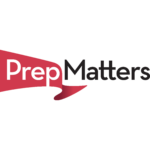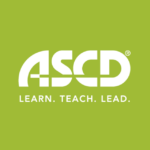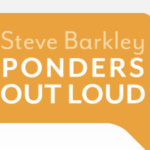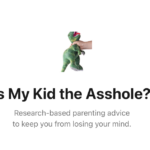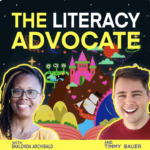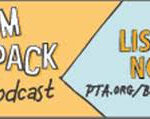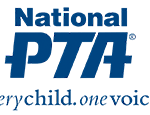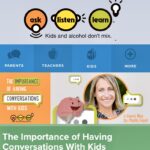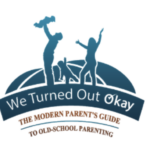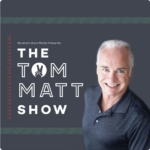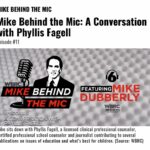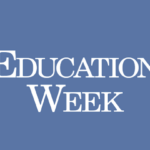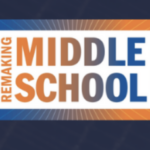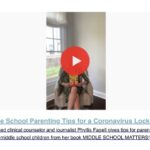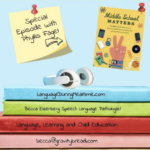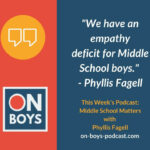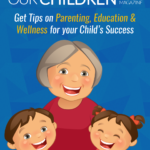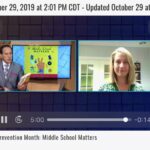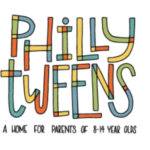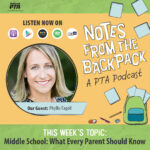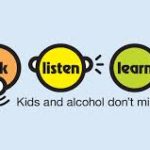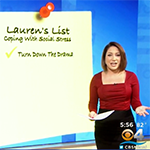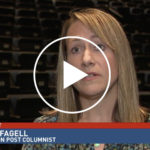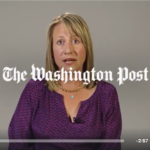Phyllis's insights have been widely published and she is a frequent contributor to the Washington Post
Phyllis is Available for Commentary and Media Interviews
Click To Read More
When I was in journalism graduate school, I'd cut and save all my clips to show potential employers. Nowadays, most of my pieces run online only, so it was even MORE exciting to see my article, ``4 Myths About Peer Pressure,`` on the cover of The Washington Post’s Local Living section.
Click To Read More
Reassuring our children during turbulent times is no small task, especially because parents’ and kids’ well-being are inextricably intertwined. But parents are not powerless. Here are six ways caregivers can help themselves — and their children — find a way back to feeling okay when times are tough.
Click To Read More
In this CNN article, Phyllis weighed in on the ``devious licks`` TikTok challenge. She warned that punishing everyone for the actions of a few students can sow mistrust, and noted that respect is a two-way street. The consequence should never be depriving students of the ability to meet their basic physiological needs
Click To Read More
The Let Grow Foundation published Phyllis's story about her son's experience going on a school trip to China at age 14, falling asleep, then waking up alone late at night on a locked bus in Beijing. Phyllis shares what he learned about his capacity to improvise in a tough situation.
Click To Read More
Whether children lack confidence because their grades took a hit during the pandemic, they’re worried about reestablishing friendships or they’re coping with stressors at home, they could struggle with academic engagement in the '21-'22 school year. In this Washington Post article, Phyllis shares six ways parents and educators can tamp down the pressure, boost kids’ motivation and help them take a more active, joyful role in their own learning.
Click To Read More
In this article for CNN, writer Christine Koh shares Phyllis's thoughts on helping teens and tweens regulate their emotions, including the following: ``Middle schoolers can have a hard time assuming positive intent, and it can help to encourage them to think more expansively about someone's motives. You might say, 'I left a message for Sandy, and she didn't call me back. At first, I walked around wondering if maybe she was angry with me, but I decided to leave a second message, and it turned out she never received the first one.'``
Read more
As the pandemic lets up thanks to vaccinations, some children are too guarded after a year of unpredictability to dive back into life with their typical enthusiasm. But as I write in my latest column for On Parenting for The Washington Post (the 6/3/21 Living cover story), with time and targeted support parents and caregivers can help even the most apprehensive child once again engage fully and joyfully. Here are six ways to help kids regain a sense of purpose
Click To Listen
There's no question that teens suffered during the pandemic --some more than others. But as Phyllis told the hosts of the BBC World News show Newsday, she doesn't consider 2020-2021 a ``lost year.`` She noted that while kids may have had less time in class, they've had more time to develop self-awareness, practice flexibility and forge transition skills.
Click To Read More
Phyllis was quoted in this article about covid's toll on tweens. As she noted, tweens have had a hard time. “Everyone is having a harder time interpreting social cues, whether they’re doing it from a distance through a screen or through a mask,`` she explained. ``Normally, if two teens get in a fight over social media, they have the opportunity to work it out in person at school the next day. But now, if a teen is in virtual school and his best friend blocks him on social media, he has no way to figure out what happened and smooth things over. All kids right now are feeling like their friendships are more mercurial and more fragile.``
Click To Read More
Phyllis is quoted in this New York Times article. Reporter Judith Warner writes: ``Ms. Fagell was adamant that parents should not panic or spread the “lost year” narrative. Helping middle schoolers requires seeing the bigger picture and holding two seemingly contradictory ideas simultaneously: The past year has been terrible, AND most kids will be fine.``
Click To Read More
In this Boston Globe article, Phyllis is quoted as saying: “We can’t talk a child out of a bad mood or pessimistic outlook; we have to help them reach those a-ha moments on their own. We can do that by asking questions that help them embrace the upside, such as ‘What insights have you gained?’ `{`and`}` ‘What have you learned about getting through a tough time?’”
Click To Read More
As Phyllis shared when she appeared on BAM Radio Network with other educators and mental health professionals: ``We need to listen, be authentic & try to assess what it is kids need from us — is it comfort? information? reassurance? a sense of agency? And then answer the questions they’re asking as opposed to what we think they’re asking.”
Click To Read More
Tweens overestimate social risk, so Phyllis interviewed the hosts of Power Hour -- married teachers Chris Lun & Monica Hepburn -- about how educators can help kids feel seen but not scrutinized. ``It's the only time we all turn on our camera,`` one girl told Phyllis. Here are four ways other educators can
Click To Read More
No one can (or should) have to be strong all of the time, but caregivers and educators can help bolster kids' optimism and resilience. For this Washington Post On Parenting column -- which also was a Living Cover story -- Phyllis interviewed an endurance athlete, psychologists, a pediatrician and more to share these seven actionable strategies.
Click To Read More
Phyllis spoke to Timmy Bauer, host of The Literacy Advocate Podcast, about middle schoolers and social-emotional skills. As she told Bauer, ``Kids often can get confused and think that they’re better off trying to impress somebody, when it's so much better to try to connect with them.”
Click To Read More
In December’s episode of PrepTalks, Ned Johnson sat down with Phyllis to talk about how the middle school years offer parents a low-stakes, high-reward opportunity to build confidence, character, and resilience and to teach kids the critical skills they’ll need to thrive in the years to come.
Click To Listen
In a year when ``back to school`` means uncertainty and nothing close to normalcy, many parents and educators are experiencing a great deal of anxiety. In this podcast, Phyllis talks to Your Teen Magazine editor Susan Borison about how adults can unpack their feelings and model calmness for kids.
Click To Read More
Children are resilient, but they're far less likely to thrive if the adults in their life are too stressed out to function. School and district leaders can help kids by supporting their educators & parents, but many have decision fatigue themselves. In this article Phyllis and Joshua Starr for Education Week, they offer leaders some strategies for sustaining their own stamina so they can take care of everyone else.
Click To Read More
Under the best of circumstances, children need to know that their world is safe and that they're competent and worthy of respect. That need for reassurance is exponentially higher in the midst of a global pandemic. Students can't solve problems, learn, self-regulate, or exhibit empathy or self-compassion if they're marinating in fear. In this article for EL Magazine (ASCD) Phyllis shares seven ways educators can help kids grieve what they've lost, cope with uncertainty, and adjust to distance learning in a new reality. The most impactful gestures are often the simplest
Click To Read More
Chicago Tribune columnist Heidi Stevens did a Q and A with Phyllis. Stevens writes, ``Depending on your school district, your kids have been e-learning for anywhere from a few days to a few weeks. I'm hearing a lot hi of phrases like, “cruel joke,” “constant tears,” “panic attacks” and “how early can I start drinking” from parents. I called school counselor, author and mom of three Phyllis Fagell for some guidance. She says: 'The burden parents put on themselves should not be to homeschool their children while working from home. It should be to navigate a crisis and do what they can to help their children adjust and adapt to unfathomable changes and stress while retaining as much of a sense of safety as possible.'``
Click To Read More
Middle school friendships are complicated. Phyllis shares how parents can help kids thrive socially in this Washington Post article. She writes, ``I had an hour to meet with the students alone so they could unload worries. As we dove into the topic of friendship, I shared statistics that normalized the social churn. “Only 1 percent of seventh-grade friendships are still intact in 12th grade, and more than two-thirds of friendships shift during the first year of middle school,” I told them. “Every single one of you is going to get rejected at some point, and it’s not because there’s something wrong with you. This is just a time when kids are figuring out how to choose — and be — a good friend.”
Click To Read More
Phyllis was quoted in this article on why kids refuse to wear coats when it's cold out. She pointed out that ``preteens—and particularly boys—have a strong desire to be perceived as tough and “not seem like a baby.” And perhaps nothing seems more babyish than being bundled up in soft, fluffy winter gear your mommy picked out for you. In other words, good old-fashioned healthy rebellion and a push toward bodily autonomy could be at the root of coat revolt.``
Click To Read More
Parents need to teach tweens about safe sex before they're sexually active, but tweens are self-conscious and unlikely to initiate the discussion. They're also less likely than older teens to have had either a romantic relationship or sex, and they may have difficulty contextualizing information or seeing its relevancy. In this article Phyllis co-wrote for U.S. News, she shares four ways adults can broach an awkward topic.
Click To Read More
Most tween drama stems from lack of social skills & life experience, not a lack of empathy. The stereotype of the mean middle schooler may be ingrained in the culture, but it's off-base & undermines kids' ability to trust one another. In her Meaningful Middle column for AMLE, Phyllis shares six ways educators can help middle schoolers create a kind, trusting culture.
Click To Read More
In this Q and A for the Michigan Association of Secondary School Principals (MASSP), Phyllis answers principals' questions about a range of middle school issues, from communicating effectively with tweens, to managing behavioral challenges, to helping kids navigate tremendous internal and external change, to creating a strong home-school partnership and easing parents' sense of isolation.
Click To Read More
Phyllis interviewed Peggy Orenstein for The Washington Post about her new book, ``Boys & Sex.`` They talked about Peggy's extensive conversations with boys between the ages of 16 and 22 and covered a lot of ground, including what boys want from their fathers. Peggy told Phyllis, ``One of the things the boys said often was that they felt kind of disappointed by their dads. It wasn’t just the guys whose fathers said, “Man up.” It was also, “My dad was a loving, charismatic guy, but he was a ‘sigh and walk away’ guy, and I learned the stunted side of masculinity from him.” Or, “He caught me watching porn, and I wish he’d said that wouldn’t serve me.” One boy said, “I wish my father had talked about some of his regrets in his sexual and romantic life; that might have been really helpful to me.”
Click To Read More
Phyllis wrote this Living cover article for The Washington Post on how parents and educators can teach tweens to give generously without sacrificing themselves. If adults don't talk to kids about reciprocity and healthy boundaries, an empathetic child can get vaporized. As Helen Riess notes in the piece, ``Self-neglect is a perilous way to live, because you're of no use to anybody if you've got nothing left to give.``
Click To Read More
Phyllis co-wrote this article about tween depression for U.S. News & World Report. As she notes: ``Tweens often get lumped in with older teens in studies, but they possess distinct characteristics and needs. Researchers reported in the journal Pediatrics, for example, that while 50% of parents were unaware of their 11- to 17-year old's suicidal thoughts, younger adolescents were more likely than older teens to deny their pain.``
Click To Read More
Phyllis wrote this article, 10 Ways We Can Help Tweens Feel Included, for Middleweb. ``In 7th grade, Katie started dressing more androgynously, pairing her jeans with suit vests, ties and the occasional fedora. The comments started coming when she cut her long, blond hair short and dyed her bangs black. ``Are you gay?” one boy asked her.
Click To Read More
If teachers can equip middle schoolers to take risks when they’re at their most self-conscious and insecure, they’ll turn out individuals who can lean into discomfort for the rest of their lives. Phyllis wrote this article for Edutopia: ``3 Ways To Boost Middle Schoolers' Confidence in Class.``
Click To Read More
The New Yorker writer Lizzie Widdicombe shared Phyllis's thoughts on middle school drama and how individuals can tap their core values and exert subtle social pressure to combat bullying. Widdicombe focused on how politicians can apply lessons learned from the middle school front to the presidential election.
Click To Read More
Tweens increasingly are using e-cigarettes. Fortunately, they're still impressionable and care what their parents think. Here are five ways to decrease the likelihood that your tween will decide to vape. Phyllis co-authored this article for U.S. News and World Report with Dr. Susan Newman.
Click To Read More
How should parents talk to kids about school safety issues? Tribune Media Services interviewed Phyllis for this article, in which she notes that while parents can rehearse phone numbers with their child and talk about what to do in case of an emergency, they should mostly try to be a non-anxious presence.
Click To Watch the Video
Phyllis did a Facebook Live with Amaze.org, an organization that produces animated videos for tweens about their bodies, sex and relationships. Phyllis answered questions from tweens and parents about middle school, covering topics ranging from shifting friendships and mean behavior to homework and managing stress.
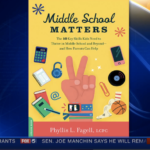
Video coming soon
Phyllis was a guest on Good Day | Fox 5 DC. She shared her thoughts about the controversy over allowing use of cell phones in schools.
Click To Read More
When Phyllis wrote this article for The Washington Post about helping kids transition to middle school, she spoke to one principal in Missouri who spends the summer visiting every one of her rising 6th graders at their homes. Once her students recover from the shock of seeing their principal at the front door, they start firing off questions that reveal their fears about the shift from elementary to middle school. Here are several ways parents and schools can help ease their concerns.
Click To Read the Article
In this The Chicago Tribune column, Heidi Stevens writes: “Middle school has a lousy reputation (Frenemies! Hormones! Lockers!) but Phyllis Fagell’s new book, “Middle School Matters,” aims to change all that—she points out that kids can emerge stronger & wiser for their struggles.”
Click To Read More
Tweens can bewilder their parents by toggling inconsistently between seeking affection and demanding privacy, soliciting advice and asserting independence. In this Washington Post article, Phyllis shares eight ways parents can disrupt that dynamic and stay connected to their child during a phase that’s defined by contradictions and flux.
Click To Read the Article
Safe spaces where middle schoolers can explore their identity are powerful because they normalize students’ experiences & decrease their sense of isolation. That only happens when kids are setting the agenda & talking to one another, not listening to us. Phyllis offers several strategies for launching affinity groups in this column for The Association for Middle Level Educators (AMLE).
Click To Read More
Phyllis was interviewed for this article in The Atlantic about helping parents, children and educators manage the mounting anxiety surrounding the start of school after several gun massacres. As she tells the writer, Alia Wong, “There’s something wrong when I’m getting an email offering a free course … learning how to pack wounds and apply a tourniquet.”
Click To Read More
Amy Morin interviewed Phyllis for this Inc. Magazine article about fostering healthy risk-taking in tweens. A sample tip: “Help your child practice taking safe risks one small step at a time. Push too hard and they'll shut down, but don't push hard enough and they won't make progress. Aim for small exposures to help extinguish their anxiety. For instance, it might be excruciatingly hard for a child to invite that girl she admires to her house for a sleepover, but maybe she can start by saying hi in the halls, then try exchanging generic texts, or asking the girl a question about a movie.”
Click To Read More
The writer Deborah Farmer Kris wrote this article about “Middle School Matters” and both the magic and challenge of parenting kids through the phase. She captures the importance of diving in and focusing on raising kids who have good character and a solid sense of their parents’ values.
Click To Read More
Phyllis wrote this article for Working Mother Magazine about how parents can raise bully-resistant daughters who are able to navigate conflict both now—at school—and later, in the workplace. She offers strategies for helping girls take risks, go against the grain, and bounce back from failure.
Click To Read More
Parents often wonder whether they should let their child — or even encourage them — to quit an activity. They might say, “Does it matter if they have a special talent, or if we’ve sunk a ton of time and money into their pursuit?“ Or they might ask, “Why would my kid suddenly want to drop something they used to enjoy?”
Click To Read More
It can be frustrating to parent — or teach — a child or teen with “Eeyore Syndrome.” These are the kids who are relentlessly negative. They’ll say things like, “My teacher thinks I’m stupid,” or “I failed the test,” or “Everyone hates me.” Phyllis spoke to several experts to get these tips on how to turn this around.
Click To Read More
Middle schoolers are unfairly maligned, so Phyllis wrote this article for Ask Listen Learn to bust some myths. For starters, most tweens really dislike drama—especially from their parents. Here’s her take on some of the biggest misconceptions about kids this age—and how parents can make the most of this critical phase.
Click To Read More
We can’t afford to overlook kids who resort to bullying. Their behavior wreaks havoc with their moral compass, lowers their empathy and hardens them to the consequences of their actions. But the greatest reason aggressors should stop is the damage they’re doing to others. In this article for “Your Teen” magazine, Phyllis outlines several ways parents can intervene when their kid is the one doing the bullying.
Click To Read More
Phyllis was quoted in this article about how to recognize, prevent, and respond to cyberbullying. As she told the writer, “If the cyberbullying involved a humiliating rumor, help the targeted child come up with a dry, boring story they can repeat to the first 15 people who ask what happened.”
Click To Read More
Girls who perceive that it’s a zero-sum game are less likely to support one another and more likely to view each other as threats, but this is short-sighted. When girls band together, they expand their options. Here are seven ways parents can raise empowered girls who celebrate and encourage each other throughout their lives.
Click To Read More
In this article for The Boston Globe Magazine, Jessica Lahey interviewed Phyllis about the importance of accepting our children for who they really are. Lahey writes about how the combined pressures of grades, sports, and college admissions can make it really hard to be patient with our kids, and she urges us to give our adolescents a little time and space to do the best they can—and to let that be enough.
Click To Read More
Jealousy is a tough emotion that can’t be vanquished. As kids get bombarded daily with messages that they’re not enough, we need to connect them with their strengths & help them appreciate that no one’s life is perfect. Everyone has insecurities and vulnerabilities. Here are some ways to help kids react constructively, in my latest article for On Parenting (The Washington Post).
Click To Read More
We worry about students who don't pull their weight, but kids who dominate lose out, too. They don't develop intellectual humility, and the loudest voice in the room can impede innovation. If we want to teach kids how to value diversity of thought—a skill that leading companies look for in job applicants—then we need to approach group projects differently. I’ve shared four ideas in my “The Meaningful Middle” column for AMLE Magazine.
Click To Watch
MIAMI (CBSMiami) – The start of another school year is just days away, and while students are stressing over schedules and supplies, parents have their own concerns. My son is still really young, but I remember middle and high school. There’s plenty of drama to go around. So one mom, Phyllis Fagell, who also happens to be a school counselor, has some advice, and we’re breaking it down in today’s “Lauren’s List.”
Click To Read More
Spending as much time as we do together, our classes can bond like families, and students can start to feel like our own kids. But when it comes time for them to move on to the next grade, the next school, or the next step in their lives, it can be hard to know the best way to stay in touch with students.
Phyllis Fagell, school counselor at the Sheridan School in Washington, D.C., and therapist with the Chrysalis Group in Bethesda, Maryland, offers tips to help educators cope with the sense of loss when students move on to their next chapter.
Podcast: Parenting Bytes
Click To Listen











